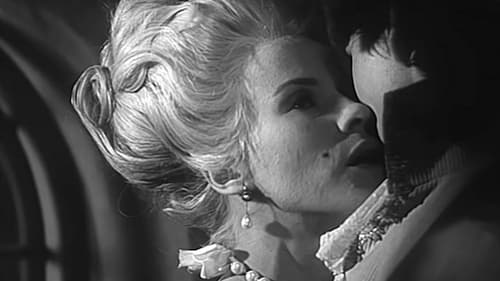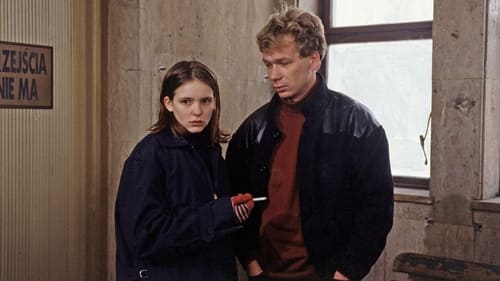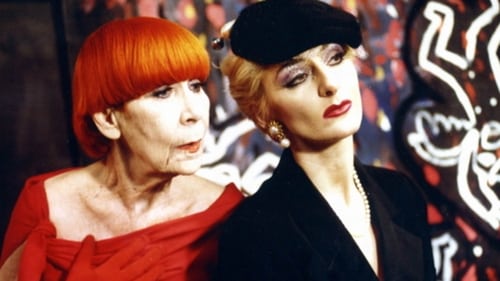
Reviewers found this somewhat surreal film so visually stunning as to be worth watching even when it was not clear to them what was going on. In the story, Jozef Schrevek is a man with unusual powers which he wishes to pass on to his son before his death, which is coming soon. Unfortunately, his son is much more interested in boozing and womanizing and being a well-known habitué of nightclubs, than in taking his father seriously and receiving his powers and the responsibilities which come along with them. The tension between the two escalates when a young woman enters their lives.

While a woman is in the hospital preparing to deliver her child, her husband has all day to reflect upon his wife and their relationship. As he tends to his job as a television repairman, Slavek fondly remembers how he first met Ivana and the days they spent getting to know one another. Slavek also grows increasingly aware of the environment that surrounds him and questions the society his new child will be entering. Loaded with a repeated plea for social change, this is the first feature from Czech writer/director Jaromil Jires.

Sweden, 1782. Jacob, a young noble, somewhat wild and vehement, returns from his studies in France. After his absence, he returns home happy, but is even happier of meeting his beloved sister Charlotte again. However, she has been promised to the Baron Alsmeden, a man of great influence at court, and this fact will awake a feeling like jealousy in Jacob.

A portrait of Sigmund Freud as a young man.

OSTKREUZ tells the episodic story of 15-year-old Elfie, who literally and metaphorically inhabits a no-man’s-land between the two Germanies shortly after the fall of the Berlin Wall. The film deploys a neorealist aesthetic to reinforce the difficulties confronting the girl, and by inference, Germany.

Experimental Yugoslav short film.

A candid, fly-on-the-wall BBC television documentary portrait of Russian Nationalist politician, Vladimir Zhirinovsky. The film shows the leader on a cruise surrounded by two hundred supporters getting plenty of media attention in New York. We are left with the nagging question: to what extent is Zhirinovsky really dangerous? To take that further, to what extent are populist politicians truly dangerous?

Neurosia is the autobiography of the director Rosa von Praunheim. The movie begins with Rosa presenting his autobiography in a movie theater. Before the film begins, he is shot. But - his body gets lost. A female journalist from a TV station begins researching the life of Rosa. In the course of the movie she speaks to lots of aquaintances, shows short clips from Rosas old movies. Her main aim is to provide sensational and shocking details from Rosas life. It turns out that nearly everybody had some reason to kill Rosa. At the end of the movie, she discovers Rosa at a boat where he is kept prisoner by some of his old enemies. She frees him, and the movie ends.

L’art d’aimer / The Art of Loving (1985), another colour short, is probably the weakest of the ten films, mostly because it’s a blurry monologue (read by Smolders) from the perspective of a man confused about past events from his youth, and the fate of his mother. Smolder’s voice is deadly monotone, and the short drones on towards a climax set in an old age home, and a room filled with men and women suffering from diverse ailments, or seniors trapped in some darkened mental gloom. - kqek.com

Experimental short film from Yugoslavia.

Colorfully edited vignettes of young characters having fun in the town of Onomichi.

Told from the point of view of a rescued buffalo, this is the story of a small town trying to find itself after the Armenian-Azeri conflict. The buffalo's reception by the other farm animals reflects the distrust rife in the countries of the post-Soviet world.

Two years after making his film BLIND KIND, Van der Keuken contacted the blind boy that had impressed him most at the time.

A documentary charting the rigors of the Russian space program, where the symbol of national pride would justify the most demanding training conditions.

Após 25 anos de casamento, Peter (Liam Neeson) descobre que a sua mulher Lisa (Laura Linney) recebe mensagens de um homem que ele desconhece. Sem escutar os conselhos da sua filha (Romola Garai), Peter, magoado, cheio de ciúmes e ressentimentos, parte de viagem para Milão à procura do misterioso amante, Ralph (António Banderas), a fim de descobrir a verdade sobre o outro homem na vida da sua mulher...

The Monarchy leads a repressive campaign against a Serb village, where an Austrian officer was killed.

Deals with filmic reality and conformity in East and West. Won acclaim at 1976 Edinburgh Festival.

Life on the Danube is essentially determined by two factors: the river itself and the often strange idiosyncrasies of the people who live along its banks. And they are multifarious: fishermen and graveyard wardens, Buddhist monks, allotment holders on Danube Island, stranded shippers, tramps and soldiers. All linked by the great current against which they swim.

Algimantas Puipa directed this 1997 drama about a painter wrestling with childhood memories of his father being exiled to Siberia.

Set in the second decade of the 20th century, this is a story of cinema entering villages of Kerala. The protagonist Diwakaran gets attracted to the new machine, bioscope, at an exhibition by Frenchman DuPont, who does bioscope shows on the coasts of Tamil Nadu.













